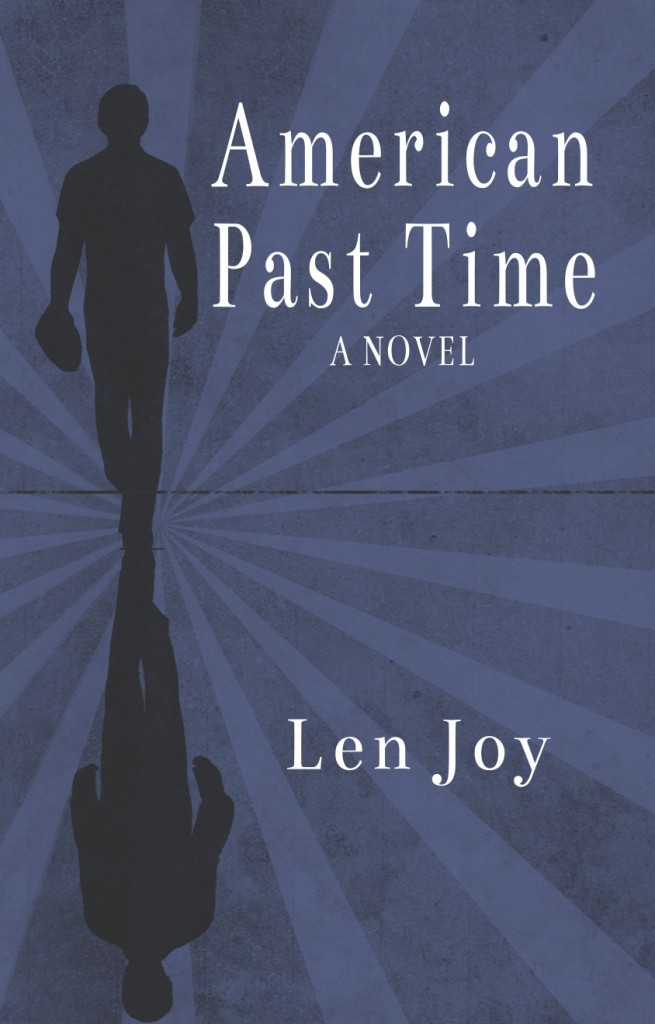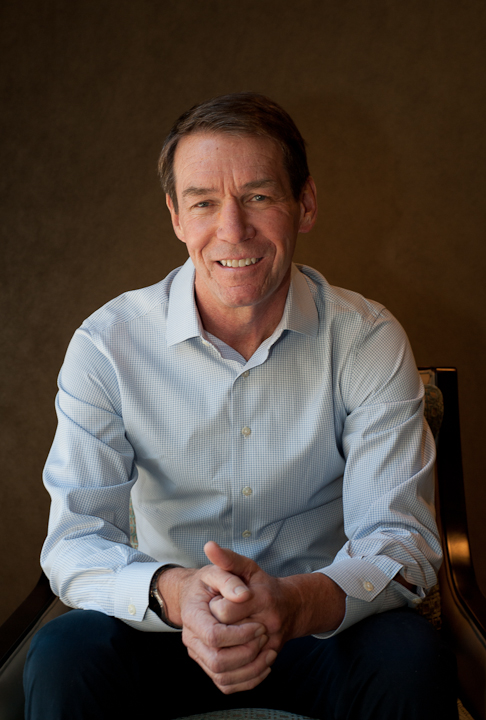As a father and as a son, I had this notion that the worst possible thing that could happen to a man would be to lose the respect of his son or daughter or wife. I wanted to explore what happens when the trust is lost.
Len Joy – 8 June 2014
The Back Flap
September 1953…
Dancer Stonemason is three days from his major league debut. With his wife and son cheering him on, he pitches the greatest game of his life. And then loses everything.
Told against the backdrop of America’s postwar challenges from Little Rock to the Bay of Pigs to Viet Nam, American Past Time is the story of what happens to a man and his family after the cheering stops.
About the book
What is the book about?
On the surface this is a story about minor league pitcher, Dancer Stonemason, who despite being three days from his major league debut, chooses to remain in a seemingly unimportant game in a quest to achieve perfection. That decision costs him his chance to make it to the major leagues.
American Past Time is the story of what happens to a family when things don’t work out the way they planned. What happens when the hometown hero becomes just another guy punching a clock? What happens when the carefree wife is not the girl you thought you married? What happens when the father you thought was “perfect” does something shameful? What happens after all that is what American Past Time is about.
When did you start writing the book?
In the summer of 2005, my niece asked me to write a story that could be read at her wedding. I thought that was a really bad idea and eventually convinced her of that – but before I did, I wrote a thousand word story about a man driving to his niece’s wedding. That man “grew” into the boy who watched his father pitch a perfect game.
How long did it take you to write it?
Eight years, nine months and three days. But I had a lot of help.
Where did you get the idea from?
I didn’t really have an idea. I was interested in relationships between fathers and sons and husbands and wives and I really like sports. As a father and as a son, I had this notion that the worst possible thing that could happen to a man would be to lose the respect of his son or daughter or wife. I wanted to explore what happens when the trust is lost. How does someone rebuild the relationship.
Were there any parts of the book where you struggled?
It took me a long time to write believably the scenes where the father, Dancer, lets down his family. Also, about half the story is told from the perspective of Dancer’s wife, Dede. I knew what was going on with Dede but getting it on the page was a struggle. Several women writers read earlier versions of the novel and they helped me to finally get her right. I hope.
What came easily?
There is a baseball game in the opening chapter and that came easily. It was a blast to write – I could finally control every pitch. And later, there are scenes from a foundry that closely resembles the foundry I worked in one summer.
Are your characters entirely fictitious or have you borrowed from real world people you know?
Everybody borrows character traits, but all my characters are totally fictitious.
We all know how important it is for writers to read. Are there any particular authors that have influenced how you write and, if so, how have they influenced you?
In terms of writing style, I appreciate Hemingway and Raymond Carver for their spare prose. I like simplicity. In terms of subject matter, I’m drawn to novels with small town, blue-collar settings like Richard Russo’s Empire Falls, or Tawni O’Dell’s, Back Roads. My alltime favorite is Larry McMurtry’s The Last Picture Show. I loved the book and I’ve watched the film a dozen times, although that may have something to do with Cybil Shepherd.
Do you have a target reader?
American Past Time covers a tumultuous two decades in postwar America. It will have special appeal to folks who grew up in the 60s. But it is really about youth and pursuing dreams, love and trying to survive. And it is about forgiveness. I think it will appeal to both men and women young and not so young.
About Writing
Do you have a writing process? If so can you please describe it?
I am a fairly serious age-group triathlete so I work out early every morning. After workout, breakfast, coffee and messing around with email and other distractions I usually try to write or review other writers for two to three hours.
I devote a lot of hours to the writing process, but I am generous in how I count the hours. I might use a long bike ride or swim to think about how to set up a scene and I run through a lot of conversations while in the shower. So I could say I spent five hours in a given day writing, but only one of those hours might have been when I was actually tapping keys on my laptop.
I do a lot of reviews and critiques and I consider that time to be part of the writing process. Seeing how other writers tackle certain subjects or develop their story helps me to avoid using the same expressions or verbs or settings.
Do you outline? If so, do you do so extensively or just chapter headings and a couple of sentences?
I have a vague idea when I start out where I’m headed, but I don’t let that prevent me from taking a different route or getting sidetracked. In Robert Boswell’s craft book, The Half-Known World, he extolls the value of not knowing your characters or your story too well. Writing is exploration and the fun part is to have your characters and story surprise you.
Do you edit as you go or wait until you’ve finished?
I write a rough draft of a scene or story or chapter without any editing and then I revise it several times before I move on to the next scene.
Did you hire a professional editor?
American Past Time was published by Hark! New Era Publishing. Their editorial support was critical in terms of helping me with the structure of the novel and in giving the story fresh eyes after I was convinced it was “perfect.”
Do you listen to music while you write? If yes, what gets the fingers tapping?
Not by choice. My daughter, who lives at home, listens constantly to Game of Thrones, Comedy Central and that zombie show on her iPad – before she goes off to work in the morning. The zombie show gets my fingers tapping, but not in a good way.
About Publishing
Did you submit your work to Agents?
I am not sure agents actually exist.
What made you decide to go Indie, whether self-publishing or with an indie publisher? Was it a particular event or a gradual process?
I only started writing about ten years ago. I have written a lot of short fiction, but American Past Time is my first novel. It took me a long time to write and while I was able to get several chapters published as short stories I didn’t have any luck securing an agent. I considered self-publishing, but I thought the odds against a debut novel that wasn’t part of a series getting any traction were too huge. So I submitted to independent presses that considered unagented work and was very fortunate to be accepted by Hark!
Did you get your book cover professionally done or did you do it yourself?
The cover was designed by Creative Digital Studios, but I’m very proud that they chose to use the silhouette illustration created by my iPad-playing daughter, Nicole Joy – who is a student at the School of the Art Institute in Chicago.
Do you have a marketing plan for the book or are you just winging it?
I work closely with Hark! on the marketing plans and I also hired JKS Communications to help me with publicity. They’ve both been great to work with.
Any advice that you would like to give to other newbies considering becoming Indie authors?
When I went to college many many years ago, I thought I wanted to be a writer so I became an English major. But in the second semester of my freshmen year after the professor eviscerated my paper on Thoreau, I decided I didn’t have what it took to be a writer. Decades later on a whim, I took an intro writing course at the University of Chicago’s Gleacher School. The instructor, Barbara Croft, was generous with her time and she offered helpful criticism that encouraged instead of discouraged.
So I guess my advice is twofold: Don’t be that kid who lets a few harsh comments discourage you. And don’t be that professor either. When you critique other people’s work be like Barbara.
About You
Where did you grow up?
Canandaigua, New York – in the beautiful Finger Lakes region of western New York.
Where do you live now?
Evanston, Illinois.
What would you like readers to know about you?
I’ve been married for forty years (to the same woman) and when I was 62 I completed the Ironman at Coeur d’Alene, Idaho. I have a lot of endurance (so does my wife, I guess).
What are you working on now?
I am about half finished with the sequel to American Past Time, which takes place twenty years later.
End of Interview:
For more, visit Len’s blog.
Get your copy of American Past Time from Amazon US, Amazon UK, or Barnes & Noble.


